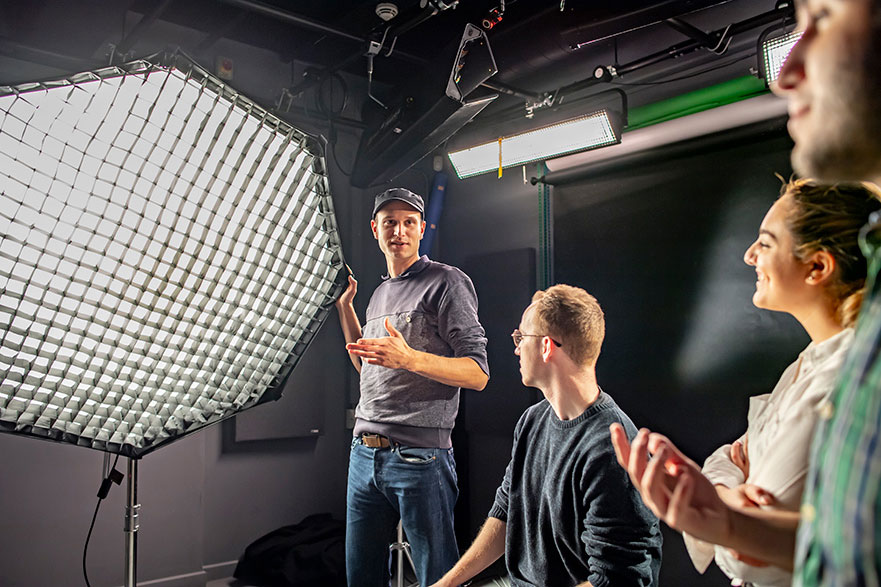Overview
This self-funded PhD project weaves together film, ecology, and light, by addressing light as the filmic substance in the context of ecological discourse. Light remains the fundamental, yet elusive, material of cinema: it is controlled, captured, manipulated, and distributed in theatres and exhibitions to create new, shared experiences. Articulated by sound, the ‘material’ of light connects cinema to an exterior, ever-changing environment, offering a site for reflection. The two meanings of the term ‘reflection’ indicate that light and thought are intimately linked. From an interdisciplinary study of this relation, which may combine knowledge from a wide range of fields in the humanities and sciences, this PhD project adopts light and perception as active, creative forces, with the power to disrupt and bring forth change.
Radical shifts in artistic practice and ecological thinking are urgently needed in a critical phase of declining biodiversity. How will light change in the cinema, and beyond, where natural environments are disappearing, and nature becomes an increasingly problematic concept? In this PhD project, light forms the starting point from which to understand film and ecology as inseparable domains. We can support a wide range of film types: essay film, video art, expanded cinema, documentary, animation, experimental film, and all art forms that sit on the border with moving image practice. The successful applicant would be supervised by Dr Lars Koens, Senior Lecturer in Filmmaking, and Dr Marco Bohr, Associate Professor in Design and Digital Arts.
The PhD project is to be completed through the traditional pathway of a PhD by thesis, or the practice-based pathway of a PhD by thesis combined with a substantial body of practice. Applicants interested in this PhD project area are asked to narrow the line of enquiry in a well-defined PhD proposal of no more than 1,500 words (not including references). Under clear headings, the proposal needs to contain the following information: a relevant title for the project, an outline of the chosen research question or focus, a brief overview of existing academic work on or connected to the topic and details of the methodology. Further information and help on writing a research proposal can be found here: https://www.ntu.ac.uk/study-and-courses/postgraduate/phd/how-to-apply/writing-a-research-proposal Further information about Research Degrees at NTU as well as the application process can be found here: https://www.ntu.ac.uk/research/research-degrees-at-ntu
The successful applicant will join one of the country’s leading art and design schools which has been influencing, inspiring, and innovating since 1843. Buoyed by recent successes such as the QS subject top 100 world ranking, the school has a vibrant, forward-looking and expanding research community where collaboration, experimentation and interdisciplinarity are embraced and actively encouraged. The successful applicant will be part of the Creative Practices, Methods and Analysis CPMA research cluster. More PhD opportunities are listed on the CPMA website: https://www.ntu.ac.uk/research/groups-and-centres/groups/creative-practices,-methods-and-analysis
Enquiries about this self-funded PhD opportunity can be directed to Dr. Lars Koens at lars.koens@ntu.ac.uk or Dr. Marco Bohr at marco.bohr@ntu.ac.uk.
Staff profiles
Entry qualifications
Entrants must have a Bachelors and a Masters Degree in a subject area relevant to the PhD research. Each degree must have been obtained with a minimum 2:1 classification (or international equivalent). English language fluency is essential.
How to apply
Applications for this PhD are accepted all year round. Please visit our how to apply page for a step-by-step guide and make an application.
Fees and funding
This opportunity is for self-funded PhD students. Applicants are encouraged to apply for external funding and we will support this process if and when required. Find out about fees and funding for PhD projects.
Guidance and support
Find out about guidance and support for PhD students.
